Diversity and our connection to the British countryside.
- Lawrence D'Silva

- Feb 2, 2021
- 17 min read
One thing I've noticed, this last year more than ever, is just how diverse the British countryside is starting to look. Never has this been so obvious as in 2020/21, the year of the coronavirus pandemic.

The1990s: a walk down memory lane
As a rural child in the 1990s and early 2000s, I distinctly remember just how rare it was to see another non-white face in rural places. I remember being out walking with my family and if I did see another mixed, or entirely non-white family, I would catch myself staring with gentle bewilderment at them. It was almost as if they were some rare species of bird! I would think to myself 'what are they doing here?'. My look of curiosity was typically reflected straight back at me, with an unspoken recognition behind a 'good morning' and a quick nod of the head as we passed each other on the footpath.
The 2020s: Changes are afoot
Whilst I’ve always spent a lot of time in the outdoors, I, like many others during this strange past year of the pandemic, have spent even more time than usual seeking out the natural beauty spots around the UK. It struck me that never before has the countryside looked so multi-ethnic. In some places, such as on the Ridgeway trail in the Chilterns, it seemed like at least half of the visitors were ‘people of colour’ (as is the current on-trend word for us so let’s roll with it). Seeing people of all backgrounds genuinely relishing being in the great outdoors – walking, cycling, swimming or just chilling – made me smile inwardly with pride. How far this country has come, from the homogenous times of old.

And my word wasn't rural Britain homogenous just 20 years ago. Even 10 years ago. You see things have been changing for a while now. Growing up in rural Britain as a non-white kid I was naturally very attuned to all this (sometimes very uncomfortably so) and so I trust myself as a pretty good barometer of how things have begun to move on.
None of this really sunk in until I first moved to London and I immediately realised what it was like to totally blend in. The joy of not feeling different. No more 'where are you really from' questions!
It also thew rural life into sharp relief. It made see the good stuff and the bad stuff more objectively. It also me appreciate the countryside more and understand the strong connection I have with it.
Are people of colour moving to the countryside or just visiting it?

In terms of people of colour actually relocating, we should really leave it to the demographers to discuss after the results of the once-a-decade national census are released later in 2021. I sense relocation has slowly started to happen and a complex range of factors are at play from economics, to employment, to community and much more. Back 20 years ago, it felt like many 'properly rural' villages were 99 or even 100% white, and indeed many of these places were, and quite often still are. However, the average figure for rural Britain in 2001 was 96.5% white, which dropped to 95% white in 2011. I wonder how that figure will have changed after this years new census?
What will the 2021 national census reveal about rural Britain?
Population dynamics aside, what I want to focus on is why we are seeing far more people of colour in the countryside out and about enjoying the outdoors. The reasons are likely multiple, but there’s one that I think is particularly important: having - or lacking - a 'connectedness' with the landscape.
What's your gut reaction to this question?

Before I start over-analysing things, here's a quick-fire question to help reveal your own connectedness to the land. Answer quickly, with a gut reaction:
Q: Yes or No, do you think of the British countryside as being 'yours'?
Connection to the Landscape
For British people of colour to regularly visit rural places in the UK for fun, I believe it's important to have at least some feeling of 'connectedness' with the land. This is something that's hard to define: it's softer, more spiritual and more intangible. It's about our love-of, our sense of ownership-over and our inherent bond-to the landscape.
It is something that's hard to define: it's softer, more spiritual and more intangible
It is something that's hard to define: it's softer, more spiritual and more intangible
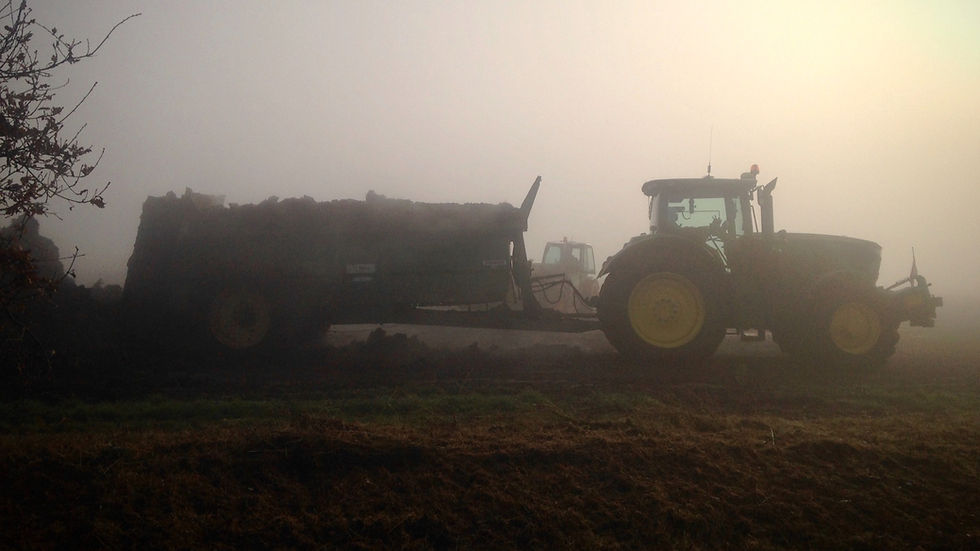
Do you feel a connection with the British countryside? What does it mean to you?
My own experience: a tale of two lands
I've always felt a strong connection to landscapes generally. I guess it must stem from having a fascination and love of nature that stretches as far back as I can remember. Being from the UK, I've felt that connection to our landscape here, but being of mixed ethnicity, I've also felt the same way about a far-away landscape that's entirely alien to most of us Brits in the UK.
A Jam Jar of India
It was a rainy weekend in December. I must have been about 7 years old and it was the first time I travelled to south-west India to see relatives. I went with my extended family, including my Indian grandparents - it was great to see them so obviously at home there. Getting off the plane, we were hit by a wall of damp tropical heat. The weeks that followed were a feast for the curious mind. I was shocked, amazed and bewildered by just how different everything was and yet I also felt immediately comfortable there.
Country-scenes from the Western Ghats, South West India.
The trip was so fun and exciting that I felt quite sad when it was time return home, which led to me doing something quite strange...
In those days the airport terminal was just a tin shack full of whirling fans. Nothing much more than a corrugated iron aircraft hanger next to the Indian Ocean. Nevertheless, women in colourful saris floated about keeping the place clean with broad sweeps of their traditional coconut coir brooms. After security, rows of camouflaged armed guards stood, lined up near the runway, keeping an eye on the passengers as they waited outside in the hot sun for the plane to arrive.
In an effort to capture the last few moments of the trip before we boarded, I got out my little plastic disposable film camera and tried to take a photo. Within seconds a guard rushed over and gave me a real telling off. 'NO PHOTOS'. I thought to myself, “Ok, you're carrying a rifle, I'm not gonna bother reasoning with you...also, I'm a seven year old.....yeah don't bother.”
I thought to myself, “Ok, you're carrying a rifle, I'm not gonna bother reasoning with you...also, I'm a seven year old.....yeah don't bother.”
Looking shyly down at my feet, but still wanting to capture the moment, I was suddenly struck by another idea. Taking off one of my gleaming white little sports socks (bang-on trend in the 90s), I walked a few meters to the rusty barbed wire perimeter fence where the tarmac ended. Here I bent down and scooped up a handful of the fiery-red, dusty earth and stuffed it into the sock (to very disapproving looks from my family!). Tying a knot in the top, I stuffed it into my bag, glanced around, trying to hold on to all the sites and sounds, and boarded the plane. When I got home, I poured the soil into a jam jar and kept it in a drawer in my bedroom. I only came across it a couple of years ago - some 20 years later - and it sparked a memory, something I would have otherwise completely forgotten about. Despite having travelled back to south India many times since, it was that jam jar that made me realise that I truly love that landscape - the very land itself.
I've since got rid of the jam jar but this photo I took in 2019 shows that same red earth. The picture here is actually part of the jungle in the Western Ghats where a huge land slide had just occurred. The other picture is a few miles away on the coast - It might look like I'm managing okay but climbing a palm tree in this way requires better balance than I am blessed with!
Finding that jam jar and reliving that memory got me thinking about this idea of connectedness to landscapes more broadly. In many ways the idea of 'connectedness' is an intangible one. It's nothing very specific, it's just kind of a feeling; that this is 'my land', it feels right, it feels a part of me, innately. From the smell of the air, to the birds in the trees, to a million other tiny 'identifiers', it all blends together to make somewhere instantly recognisable - to have its own character, to have its own 'soul' and to feel a part of it all.
Back in Britain: The green grass of home.
I'm lucky to have always had an equally strong connection to the British landscape. I think I'm slightly unusual in that regard, compared with the overwhelming majority of non-white Brits who grew up in towns and big cities.
Growing up in rural Britain, it was just my norm. Even if there weren't many other people around who looked much like me, I had no real choice but to feel like it was my landscape too. It helps that I've always loved being outdoors, seeing wildlife, getting muddy, playing sports. Boyish interests (that I still secretly love) like tractors, combine harvesters and other random bits of farm machinery mean that I have an easy love of the countryside and the goings on of rural life. After all, a bond with the landscape isn't just a bond with the land itself, it's a bond, or at least a quiet appreciation, of the human lives and activities that make that landscape what it is.
The green fields of England
Fostering the connection
The problem is, my case is not the norm for most ethnic minority people in the UK. If you haven't grown up in a small village, a connection to this landscape is something that might need to be developed rather than being innate. There are two major barriers to this: firstly, interactions with local 'country folk' and secondly, the actual nature and characteristics of the countryside itself. Let's have a look
Encounters with 'the locals'
Many people of colour can feel quite judged by people in the countryside. I've certainly felt this myself in the past, and for many people it can feel really quite extreme. I'm keen not to blame rural Brits for this, or to say it's their fault, because it's somewhat the story of human nature. Prejudice and fear-of-the-unknown is something that plays out all over the world, wherever there is one largely homogenous 'tribe' of people and small numbers of others who are racially, culturally or otherwise 'different'. Nevertheless, this is a huge reason why non-white Brits have not typically felt welcomed in the countryside.
In fact, these attitudes can even be super-localised and extend well beyond race. One example that still amuses me is from the village I grew up in. There was once a very old man, in his early 90s, who used to have a small farmstead on the edge of the village where he tended some cattle and had lived all his life. My mum was chatting to him one day and asking about his wife who had passed away a few years before. He spoke fondly of her and said, “oh, but she wasn't from around here". It was a statement that naturally demanded a follow up question so my Mum, curious at this, promptly asked where his wife hailed from. We fully expected him to name somewhere exotic like, I dunno, Birmingham or somewhere. However, his answer to this, which was delivered without a shred of irony, was to name the nearest neighbouring village, no more than 2 miles down the road! If that isn't an old-school local attitude, I don't know what is.

When I’m in the countryside now it just feels very different than it once did. I rarely feel judged. It could be because I’m older, more confident and sure about myself, but I think it's much more than that. I sense that the attitudes of white rural folk are a lot more accepting and progressive than they once were, especially in younger generations.
I genuinely get the sense that the scales have finally tipped the other way, with more people now anti-racist now and proudly so. Those old prejudiced attitudes still absolutely exist, yet things have been changing in the direction of love and acceptance and I believe this is a fundamental reason why more non-white Brits have started to feel confident in getting out into nature and exploring.
As we are about to see, the British landscape isn't often a place of vast wildernesses. So much of the land is highly ‘managed’ that the human element of the landscape is crucial in welcoming more diversity into the countryside.
I fully expected him to name somewhere exotic like, I dunno, Birmingham or somewhere.
However, societal changes can take generations to happen - they can often be happening relatively quickly but that doesn't mean it's necessarily fast enough to be easily observable. The fact that we are even seeing some changes, which might have slowly started happening 20+ years ago, is positive.
A landscape that takes effort

So with a slowly more welcoming vibe in the countryside, is there something else standing in the way? Well, yes. The first is obvious - the weather. The second is less obvious - it's that the countryside, compared to other countries, by its very nature, is itself less 'obvious'.
The weather:
I'm adamant that many non-white Brits seem to have a stronger than average hatred for the cold, the wind and the rain, even if they grew up in the UK. I know that's true for me and I've heard countless others say it. I think this hatred and intolerance for bad weather is partly cultural - a sort of 'inherited emotion passed down from first-generation immigrant parents who found the cold, wet weather so hard to bear when they first arrived from more tropical climes.
When I’ve been walking in rural areas this winter, I see lots of white people and almost no people of colour. Visiting those same places over the last few summers, the face of the countryside was far more mixed. Having had this at the back of my mind for a couple of weeks now, I've also heard several non-white friends make a point of proclaiming just how much they despise the winter.
All this is good enough anecdotal evidence for me to conclude that most non-white Brits hate the bad weather much, much more than your average! If you're a non-white Brit reading this, let me know if you disagree, I would be interested to hear your opinion.

Sometimes getting out into the grey bleakness can feel both horrible and completely illogical..... until you actually do it!
A land less-obvious:
The other big barrier is the British landscape itself. Scotland, Wales and N.Ireland aside, England is a wonderful place but a lot of this wonder isn’t often what you would call ‘dramatic’. It's a green and pleasant land with subtle beauty. It's all about noticing the little things; the gentle changing of the seasons, the dozens of shades of green, the different crops in the fields and the berries on the hedgerows.
It's a green and pleasant land with subtle beauty - It's all about noticing the little things
None of this is classically enticing, or features in the glossy pages of global nature magazines like National Geographic. It's not like other parts of the world which slap you in the face with epic mountains, bright blue seas, thundering waterfalls, towering forests and 10 hours a day of good lighting. In many other countries - even our European neighbours - the major motorways will take you straight through jaw-droppingly awesome wilderness. Places that make you pull over, get out and gawp whilst making you feel satisfyingly small compared to the majestic power of nature. They might more quickly ignite a sense of awe and wonder, which for many is the reason for getting out into nature in the first place.
The English countryside is not often like that. It's more of a slow-burner, a bit less obvious, less 'brash' or in-your-face with its beauty. This lack of brashness is actually quite fitting for the national psyche. However, it's a place that in a short time it's easy to become very, very fond of. Neat hedge-lined fields of green are often the dominant landscape in rural areas. It's a highly managed landscape and one that reveals its serene, bucolic loveliness only after you get to know it a bit. It's give and take, it requires that ever dwindling resource of time.
That doesn't mean there aren't breathtaking places in the UK that excite your sense of adventure, it just means it takes a bit more research to find them. In Scotland, Wales and Northern Ireland such places are more numerous but in England they are a bit fewer and father between; they might be hidden between areas that look otherwise mundane.
they might be hidden between areas that look otherwise mundane.
A classic case is the coastline. I genuinely believe that England has stretches of coastline that can rival anything in Europe and yet if you were to ask the average person to describe a British beach and they would probably think of a tacky amusement arcade on a grey, flat shingle beach that shelves blandly into a muddy brown sea. Don't get me wrong, there is a lot of that but it's a stereotype that can get in the way of people bothering to try and seek out the great stuff too. If you think it's all brown murky sea and sea gulls trying to sh*t on your head then why would you even bother?

It's often the stereotypes of the British countryside that don't always paint an accurate picture of the amazing landscape that we do actually have. The pic above is the Jurassic coast in September.
Why bother fostering connectedness to the land?

You may wonder why we should bother trying to foster a connectedness to the land, if it's not already there? Surely people either feel it or they don't? I believe this connectedness is the key to ensuring a diverse range of people are getting the same enjoyment from the countryside as I and many others do.
However, there is also a much wider importance and it extends beyond the boundaries of diversity and race. In fact, it extends to the staggering 83.7% of all British people that live, not in the countryside, but in urban areas. (World Bank, 2019)
Beyond diversity: the health of an ever-urbanising world
What is this wider importance? Well, it comes out of a new body of research that is showing just how important spending time in nature is to humans. This is an area of science that is only just starting to take off. Given that we, as humans, have spent >99.9% of our evolutionary history living, not in towns, but in the natural world, it doesn't take a genius to work out that there must be many essential aspects to simply being in nature that we just don't know about yet. There must be things that go beyond the obvious benefits of just getting off the sofa and being more active.
We, as humans, have spent >99.9% of our evolutionary history living, not in towns, but in the natural world
As the UK and the rest of the world continues to rapidly urbanize, we risk losing our connection to the land and in doing so we are jeopardising our health and wellbeing, both physiologically and mentally. Every year, new studies are starting to show the direct impacts of nature on our human biological processes that keep us alive and well. It's not just taking more exercise and losing weight, it's about the unseen effects of nature that actually change how our bodies work.

For example, did you know that simply being in a forest causes your body's immune system to produce more of our cancer-fighting 'natural killer' (NK) cells? Neither did I until quite recently! This really is a fast emerging area of science and over the next few years we can expect more and more studies that prove just how important nature exposure is to our minds and bodies. I’m not talking about the pseudoscience wellness chatter you get on social media, I’m talking about cold, hard, scientific fact. Nature really is that intrinsic to our existence - watch this space.
The changing face: others, in their own words

In summary, spending time in the great outdoors is on the up for minority-Britain but as I've attempted to explain, it does need an active building of connectedness and affinity for the British landscape in order for this trend to continue. It requires people of colour to believe that the landscape intrinsically belongs to us and is a part of our identity too. Slowly but surely, I feel this is starting to happen.
I'm going to leave you, as promised, with some extracts from conversations I've had with a few non-white friends this year. It wasn't done as a survey or structured interview, so don't draw too many conclusions. They are more just quotes from informal chats which build upon what I've written above and simply act to offer an opinion that's outside of my own.
I've annnoymised the names by just replacing them with numbers. For context: all are second generation BAME immigrants. They are British, share and love a lot of British ways of life, speak with British accents and were all (largely) born and raised here. Happy reading.
1.

"It’s interesting how my view of the English countryside has changed. I know a lot of BAME people feel alienated when they go into the countryside as though it is somewhere incredibly ‘white’ but I am increasingly feeling this is my landscape too. I didn’t used to feel like this as a child."
“The English landscape is becoming more of my home, even though my ancestors came from elsewhere.”
"My perspective has changed. It wasn't until I was an adult that I travelled to Bangladesh and West Bengal for the first time and as a result I didn’t feel any emotional attachment to that area, although it's an interesting place. So the English landscape is the only one that is really mine, by default."
2.

"I love the countryside and it’s not that I think people there will be outright racist to me. It’s more a legacy of growing up in all-white rural England that made me very aware of my colour so that even now I’m aware of it in rural areas. I forget that things have started to move on. That said, I don't think I could move back to the countryside because I like blending in."
"I was really pleased to see black and Asian people at Margate and other Kent beaches last summer. I often went there as a child but felt like the only non-white person."There was even another Asian family playing drums and singing, which I found almost shocking. That was the opposite of what we were implicitly taught, which was about blending in and keeping your head down. I was kind of embarrassed by them (for reason above) but also glad they were owning their identity on an English beach.
3.

I grew up in a village. Around the village there are fields in all directions. (Although it’s only 15 minutes drive from the outskirts of Colchester). There is horse riding down the road, a village pub, a now-closed village post office, a-now closed village shop, a town hall, cricket on the green, a local primary school, farmers.
Until I listed all those things, I never realised how countryside it was! I didn’t particularly live the country life though. Apart from climbing trees! I think my dad was, and is, the only black man in the village
The local pub was called The Black Boy. Hackney would’ve cancelled the s**t out of that place!
I wouldn’t move out of London at the moment, but my reason is vibe rather than racism. I actually often feel more relaxed in the countryside just because there’s fewer people.
"If I had to describe it, I somehow consider that I’m 'borrowing' or visiting the areas in which I've lived [currently north London]. Conversely I've felt intense ownership and connection to my actual homes in which I've lived (and their contents), throughout my life."
4.

"I have now moved out of the city to a village in the countryside. I was nervous at first, having gone to school in a whiter than white town in Wales, but I find it pretty friendly here in the gym, running club, out walking etc. There are racists, as I found out when a black girl in my village posted about Black Lives Matter on the village Facebook page, but the majority of people are nice."
"It means so much to me to live in close proximity to nature, I don’t care what people think of me" I mean, this is what I saw today: a baby antelope being chased by a flock of geese - who knew?!? What bullies!! Only to get terrified by me filming him!!"
5.

I do tend to feel like people look at me differently in the countryside, I think I’m good at reading faces and see people ‘registering’ that I’m Indian if that makes sense. Or I’ll get questions asking where I’m from which always seems personal to me (but I’m a guarded person). Unless I offer it up I don’t think ppl should ask.
To be honest, it was until I spoke to you about it the other weekend that I felt comfortable saying that this feeling wasn’t just in my head. My fear in talking about it is that people won’t believe me.
Growing up we never ventured very far north because my parents experienced a lot of racism when they came over (they met in Sunderland).
In terms of countryside my family are pretty useless at going for walks but as I’ve gotten older I see it's importance for mental health! I wouldn’t have described the land as 'mine' but having conversations with my dad since I’ve been home makes me feel differently. I always thought of myself more as first generation but in a sense my family have been British subjects for generations.

Lawrence D'Silva



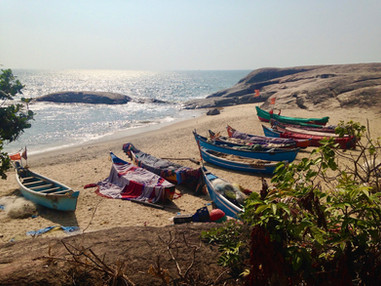

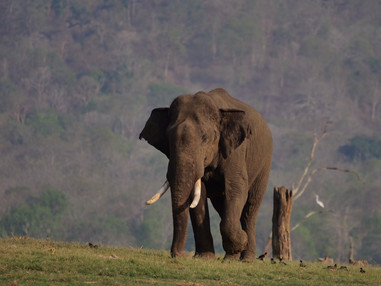









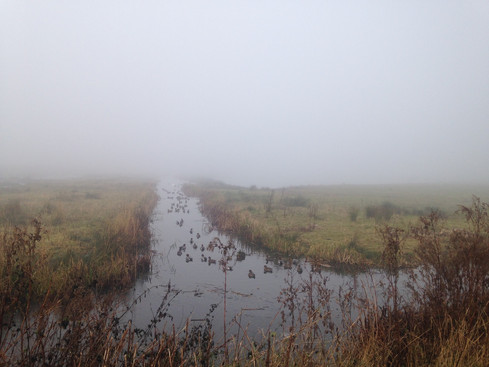



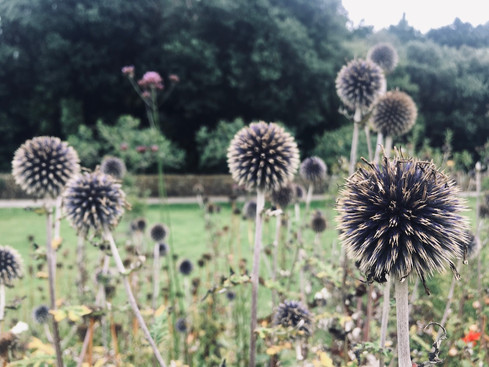





Comments